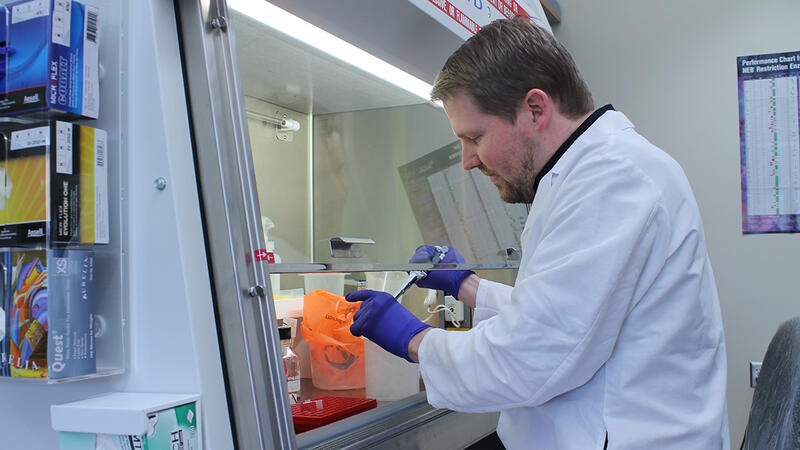News
Genetic toolkits boost biofuel production
With a new method to synthesize a popular pain-relieving medication from plants rather than fossil fuels, researchers at the Great Lakes Bioenergy Research Center have found a way to relieve two headaches at once.
Switchgrass is attractive as a potential bioenergy crop because it can grow for years without having to be replanted. Requiring less fertilizer than typical annual crops like corn, switchgrass can keep more nitrogen, phosphorus and carbon in the soil and out of our air and waterways. But, unlike corn, breeding of switchgrass for optimal traits is still in its early stages.
The April 2019 issue of Current Opinion in Biotechnology features a series of papers focused on plant biotechnology and lignin bioengineering, including several familiar faces at Great Lakes Bioenergy.
Developing renewable, plant-based alternatives for petroleum-derived chemicals is a major piece of the effort to transition away from a fossil-fuel based economy toward a more sustainable and environmentally friendly bio-based economy.
Petrochemicals, the oil- and gas-derived compounds that serve as the molecular backbones for much of modern commerce, commanded a $539.3 billion market value in 2018.
Replacing just a few of those petroleum products with chemicals made from plants or microbes could put a substantial dent in the world’s fossil fuel consumption.
Farmers can’t predict their annual corn harvest with certainty, but with the help of new research from Michigan State University, they can now pinpoint specific parts of their fields that consistently produce either good or bad yields. Not only will this save them time and money; it will solve one of the most widespread environmental problems facing crop-producing regions – nitrogen loss.
Microbial production of fuels and other useful chemicals offers renewable alternatives to products that are currently derived from fossil fuels.





